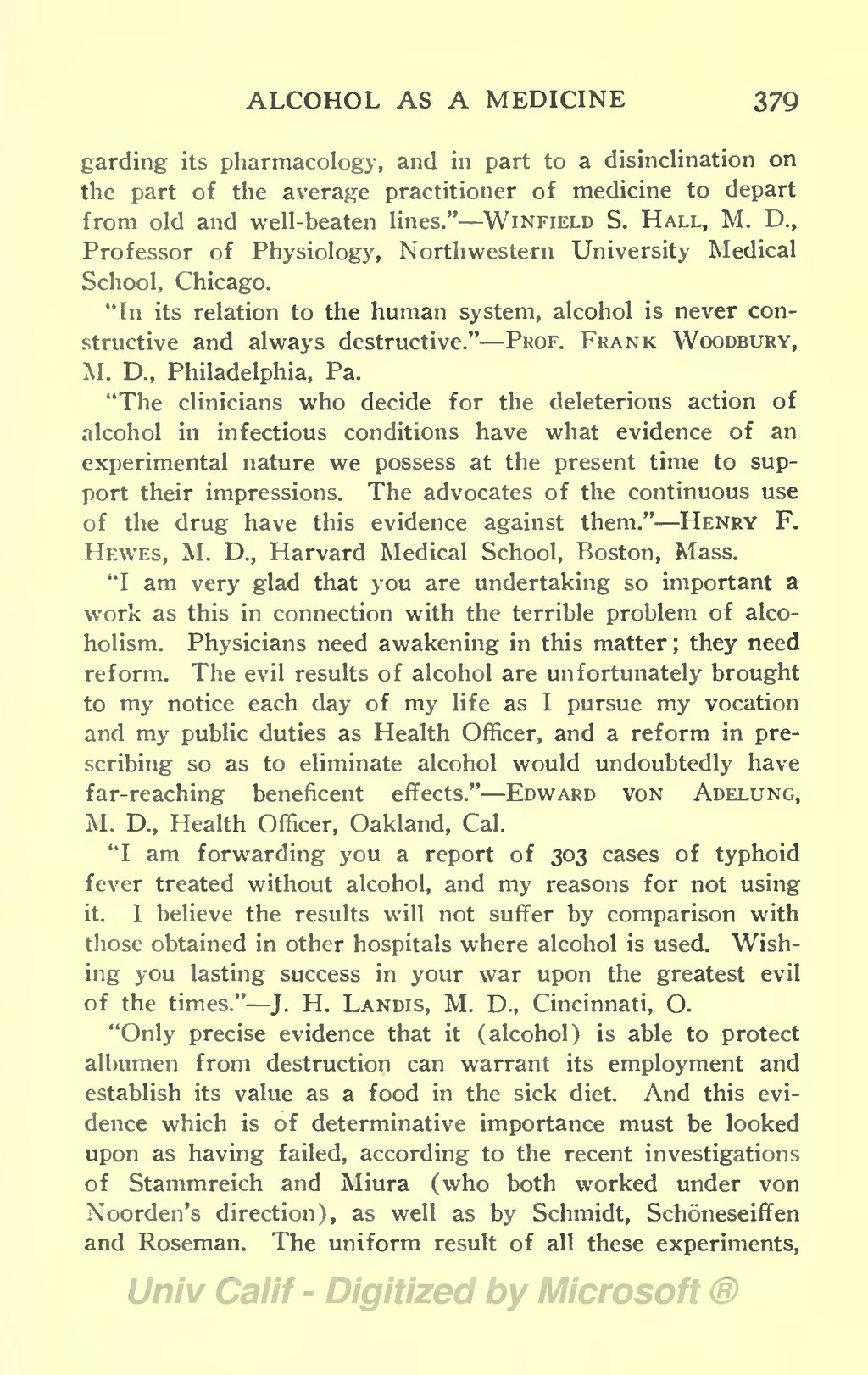garding its pharmacology, and in part to a disinclination on the part of the average practitioner of medicine to depart from old and well-beaten lines."—Winfield S. Hall, M. D., Professor of Physiology, Northwestern University Medical School, Chicago.
"In its relation to the human system, alcohol is never constructive and always destructive."—Prof. Frank Woodbury, M. D., Philadelphia, Pa.
"The clinicians who decide for the deleterious action of alcohol in infectious conditions have what evidence of an experimental nature we possess at the present time to support their impressions. The advocates of the continuous use of the drug have this evidence against them." Henry F. Hewes, M. D., Harvard Medical School, Boston, Mass.
"I am very glad that you are undertaking so important a work as this in connection with the terrible problem of alcoholism. Physicians need awakening in this matter; they need reform. The evil results of alcohol are unfortunately brought to my notice each day of my life as I pursue my vocation and my public duties as Health Officer, and a reform in prescribing so as to eliminate alcohol would undoubtedly have far-reaching beneficent effects."—Edward Von Adelung, M. D., Health Officer, Oakland, Cal.
"I am forwarding you a report of 303 cases of typhoid fever treated without alcohol, and my reasons for not using it. I believe the results will not suffer by comparison with those obtained in other hospitals where alcohol is used. Wishing you lasting success in your war upon the greatest evil of the times."—J. H. Landis, M. D., Cincinnati, O.
"Only precise evidence that it (alcohol) is able to protect albumen from destruction can warrant its employment and establish its value as a food in the sick diet. And this evidence which is of determinative importance must be looked upon as having failed, according to the recent investigations of Stammreich and Miura (who both worked under von Noorden's direction), as well as by Schmidt, Schöneseiffen and Roseman. The uniform result of all these experiments,